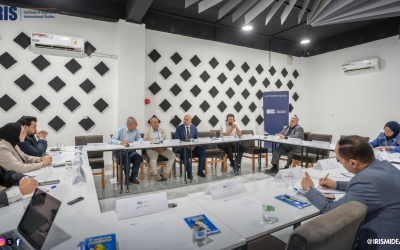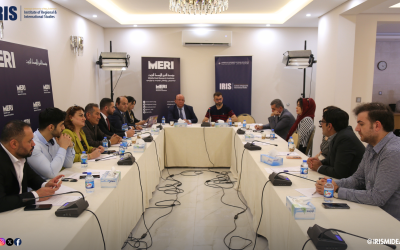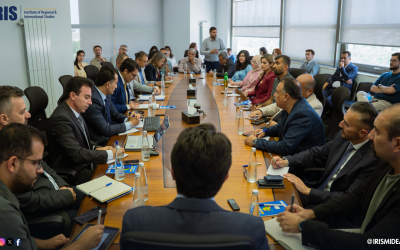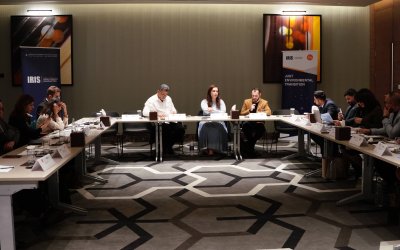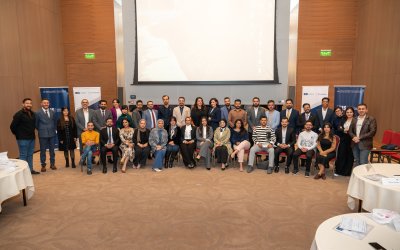After a decade-long hiatus, Iraq is set to hold provincial council elections on December 18, 2023 amidst growing political tensions and calls for boycotts. As Iraq inches closer to the vote, the country’s major political parties and a number of emerging parties are positioning themselves to gain their share of the local, district and provincial council seats. To provide an opportunity for discussion and debate about potential scenarios and political implications, IRIS convened experts and officials on November 27 for a panel discussion entitled “Looking Ahead to Iraq’s Provincial Elections.”
The panel featured Sajad Jiyad, IRIS Senior Fellow along with Sarbast Mustafa, Former Chairman of Iraq’s Independent Higher Electoral Commission (IHEC), Jawed Habibi, Senior Electoral Advisor at UNAMI, Taif Al-Khudary, Researcher at the Department of Politics and International Studies at the University of Cambridge, and IRIS’ Executive Director, Mac Skelton as the moderator. The panelists shed light on the roles of relevant entities in organizing the upcoming provincial elections and discussed its political dynamics.
This election is an opportunity to change the political map and a test of how the national elections will be conducted in 2025.
The panel took place following the publication of a recent IRIS report entitled “Iraq’s Provincial Elections: Electoral Dynamics & Political Implications.” The report, which was written by IRIS Senior Fellow Sajad Jiyad, analyzed obstacles to the election’s occurrence, electoral dynamics between different competing parties, and challenges facing emerging parties. During the panel, Jiyad highlighted the importance of the provincial elections in terms of constitutional requirements and the influence on local political dynamics. Jiyad stated during the event: “This election is an opportunity to change the political map and a test of how the national elections will be conducted in 2025.”
Taif Alkhudary delved into the challenges facing the independent parties. She attributed their diminishing prospects to political fragmentation as well as accusations of corruption. Alkhudary noted: “The established parties and political elites have been using judicial factors. So picking up people for really vague charges of disrupting public morals or issuing arrest warrants against a lot of the independent candidates that are running for provincial elections…This compromises the fairness of the electoral environment.”
Finally, Habibi and Mustafa highlighted the role of IHEC as well as the international community in preparing for and monitoring the provincial elections. The panel brought together a diverse audience including students, scholars, researchers, and policy makers from across the country. The livestream of the event is available below:

